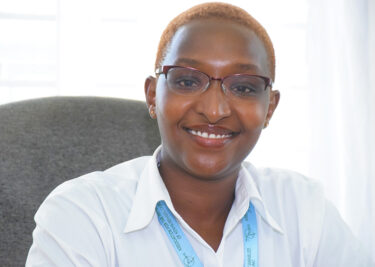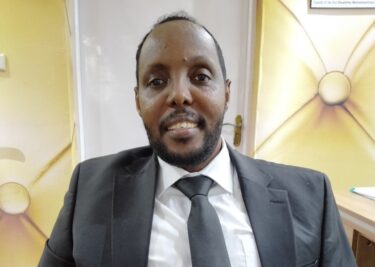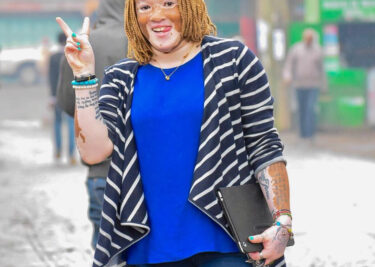Strength in Unity: The Inspiring Journey of Parents Who Founded the Cerebral Palsy Society of Kenya

Annual CPSK Walk. Image Credit: cpsk.or.ke
It all started over chai and samosas at the Exotica Restaurant in Nairobi CBD. The year was 1995, and, on a regular Saturday afternoon, two young parents, Albert and Catherine Mumma, made their way into the busy food outlet. They had decided to go there upon the recommendation of their paediatric neurologist, Dr. Miyanji, who had advised that this was the best place to find a network of other parents of children with cerebral palsy.
It was at Exotica that they met a lady named Grace Rodriguez, who at the time was the Head Teacher of St. Peter’s School for the Intellectually Disabled, and later got married to the owner of the restaurant, Nasir Alibai. They were also introduced to Harsha Shah and her husband Rajesh Shah, Michael Mwangi, Sarat Shah, Wanjiru Mwangi and Dinesh Shah, all parents of children who had been diagnosed with cerebral palsy. These meetings were exactly what the couple had been searching for, and Saturday afternoons at Exotica would provide them with a treasured support system where they were able to exchange parenting tips and share stories of their beloved children.
Molo’s story
Like many other parents, the Mummas had never heard of cerebral palsy before their first-born child, Molo, was diagnosed with it.
In Catherine’s case, her pregnancy with her son was normal. Unfortunately, she developed pre-eclampsia, which caused a long and hard labour. Due to this, and other factors, including medical negligence (the latter also being the case for many other families), her unborn baby was asphyxiated. However, no alarm bells were raised when the family was later sent home. It was not until months later when the couple observed delayed milestones in their child’s development, that they went looking for answers. Their search led them to Dr. Osman Miyanji, an experienced paediatric neurologist based at Aga Khan Hospital, and one of the few people at the time who could accurately diagnose their child’s condition as cerebral palsy.

Albert Mumma holding his son Molo on the right and Catherine Mumma holding her daughter Minna on the left
Cerebral palsy (also referred to as CP) is a group of movement disorders caused by damage to the brain as a result of injury, asphyxiation, infection or more. The condition can usually be detected in early childhood, and, depending on its severity, the person may experience a variety of symptoms including weak muscles, problems with vision and speech, epileptic seizures and more.
The Foundation of CPSK
Seeing the immense value in their sessions at Exotica, the small group wanted to reach out to even more parents and create awareness about the condition, which was heavily stigmatised. Their outreach began by founding the Cerebral Palsy Society of Kenya (CPSK), which was registered by the Attorney General’s Office in 1996. The first committee of the Society comprised of Rajesh Shah as Chairman, Harsha Shah as Secretary, Sarat Shah as Vice Chairman and Dinesh Shah as Treasurer.
As their focus was to find more parents like themselves, the crew printed stories in the newspaper explaining who they were, always ending with a friendly invitation, ‘You’ll find us at Exotica Restaurant on Saturday afternoon’. They hoped that this outreach would encourage other parents to accept and feel comfortable with their child’s condition, and it seemed to work, as more and more people joined the group. As the cohort grew, they invited Dr. Miyanji, and other like-minded professionals, to come give talks on diagnosis, nutrition, therapy and other issues of concern to the parents.
CPSK’s Impact
Shortly after the registration of the Society, in late 1996, Rajesh Shah passed on the mantle of chairmanship to Albert who served two three-year terms, up until 2002. Under Albert’s lead, the focus was to raise money to set up a therapy clinic for those parents who could not afford the costly therapy sessions that their children required. Then was born the idea to do annual walks to fundraise for the cause. Using the money raised, CPSK hired a room near Gikomba Market and employed one of the parents, Margaret Kakala, as an administrator, as well as two physiotherapists, who they paid to run the clinic and provide therapy services to parents who needed them and were able to bring their children to the clinic.
Following his retirement from chairmanship, Albert then moved on to join the board of trustees of St Peter’s School, a school which had been founded by Mr and Mrs Jonah Ng’ang’a in honour of their late child, Peter, who had also been diagnosed with cerebral palsy. The aim of the school was to create a space that could cater for the needs of CP children facing severe mental disability who could not join mainstream schools.
The Cerebral Palsy Society of Kenya remains active to date and continues to push for awareness about the condition and raise resources to support Kenyans living with cerebral palsy. St Peter’s School continues to offer a safe space to CP children from working class backgrounds living in the Kangemi and its environs, giving them the opportunity to socialise in a school environment and pick up what learning they can.
In Kenya, parents of disabled children receive little to no support in caring for their loved ones as there are few appropriate public schools to cater to them, and they usually foot the medical bills for assistive aids, specialised professional care and medication on their own, with no tax relief. This makes the situation even more dire for single-parent households. Hongera to these Kenyan parents for their undying love and dedication to their children, despite the societal stigma and systemic limitations.
#PaukwaPeople
#DisabilityNotInability




2 Comments
My name is Tukwa Musa Lenaimalda I’m from samburu, and I have a fourteen year girl who is cerebral palsy her twin sister is at form two I’m crying out for help through cerebral palsy society of Kenya 🇰🇪 to help me to eat a school that will help my daughter to learn and get skills & improve her condition s I came from a community who’s marginalized by their culture lm not educated person but I hope my message has reached out to you all I had tryed joy town interview but they reject her for a known reason
Kindly help me yours faith fully Tukwa
Hello, thank you for your message. Kindly reach out to CPSK for more help on this matter: https://cpsk.or.ke/. We truly wish you all the best as you seek intervention for your daughter